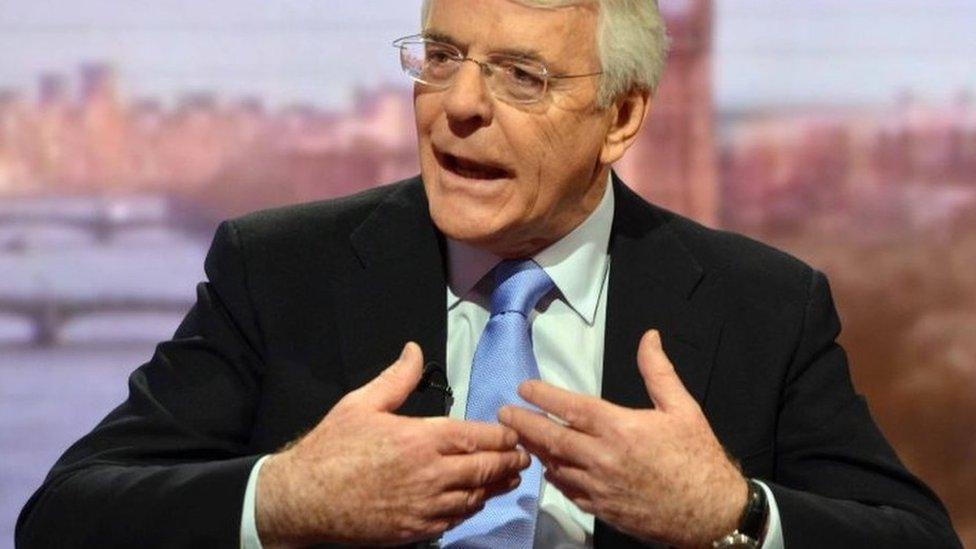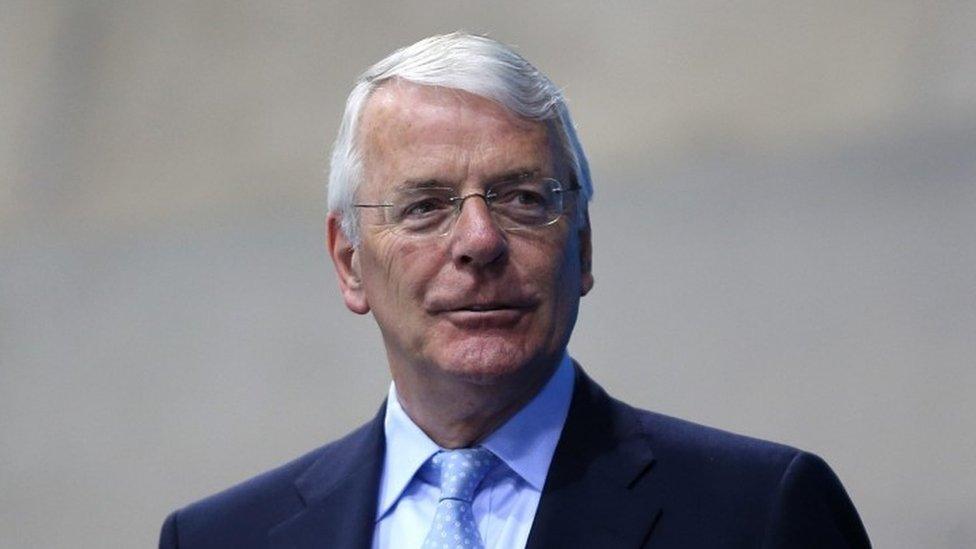Iain Duncan Smith accuses Sir John Major over new Brexit vote bid
- Published

Ex-Prime Minister Sir John Major has been accused of "an absolute dismissal" of democracy after he suggested there should be a second Brexit vote.
Iain Duncan Smith, Leave campaigner and another ex-Conservative leader, said: "You can't claim democracy when you want it and reject it when you don't."
He spoke out after Sir John also warned against Brexit being dictated by the "tyranny of the majority".
Mr Duncan Smith said: "We had a vote, that vote now has to be acted on."
The dispute came after Sir John, Conservative prime minister between 1990 and 1997, called for the 48% of people who voted against Brexit in June's referendum to have their views considered.
"The tyranny of the majority has never applied in a democracy - and it should not apply in this particular democracy," he said.
He argued that Parliament would have to ratify whatever deal is finally reached by the Brexit negotiators and there could be a case for a second referendum, depending on the deal on offer.
Mr Duncan Smith told BBC Radio 5 live's Emma Barnett: "The idea we delay everything just simply because they disagree with the original result does seem to me an absolute dismissal of democracy.
"And that's what I thought John Major's comments were today. The tyranny of the majority? What's the tyranny?"
Maastricht Treaty
Bernard Jenkin, a Conservative MP and leading figure in the Vote Leave campaign, also dismissed Sir John's talk of a second referendum.
"The idea this particular genie can be put back in the bottle after the British people have voted in a year-long debate - that we are now going to vote to stay in the EU - is absolute rubbish," he said.
Mr Jenkin argued that the UK could have avoided Brexit if Sir John had held a referendum on the Maastricht Treaty, which was responsible for the creation of the European Union almost 25 years ago.
"If he had stopped the Maastricht Treaty, there would have been no monetary union, there would have been no eurozone crisis, no bailouts, no centralisation of power in the EU - we might even still be a member of the EU," he told the BBC.
"And it's because he gave in on the Maastricht Treaty that we've had to finish up leaving the EU."
Liberal Democrat MP Nick Clegg, the former deputy prime minister, weighed in to add that while the government had a mandate to leave the EU, it did not have a mandate on "how" to leave.
Speaking on BBC Radio 4's World at One, he criticised what he called the "almost hysterical fervour of the hard Brexiteers" to turn Britain into "a low regulation, low tax, enlarged offshore Singapore for which they have no mandate".
He insisted it was "quite right that people, particularly from the centre ground point of British politics, say: 'Hang on a minute, that's actually not what people necessarily voted for on 23 June'."
He added: "Brexit yes, but not this very hard ideological Brexit that they seem determined to pursue."
- Published21 November 2016

- Published28 October 2016

- Published29 April 2016
